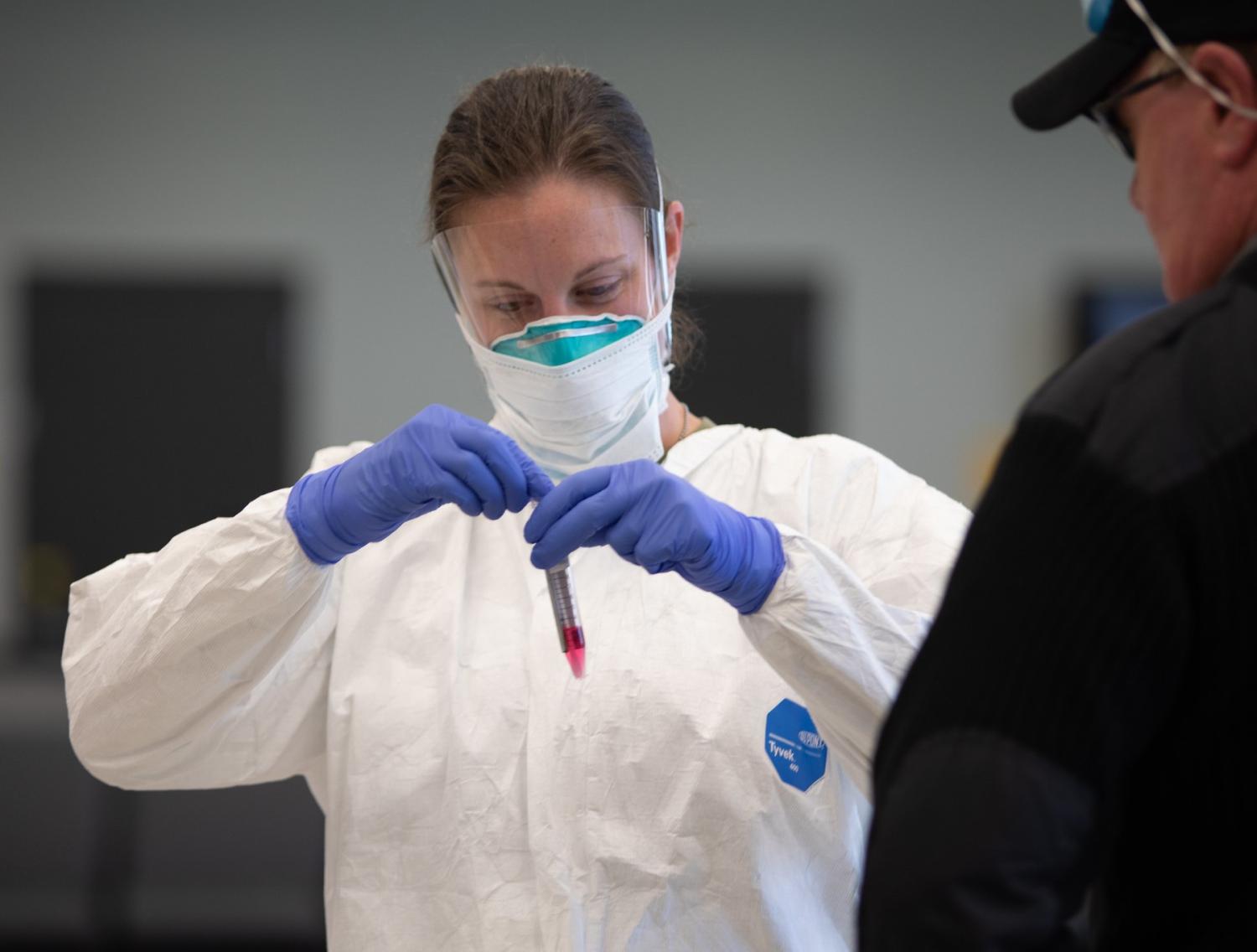As the United States enters into an uncertain new phase of the COVID-19 pandemic amid controversies about political meddling in the federal response, the nation's leading health officials today told lawmakers that the country is making some progress against the coronavirus, but they urged Americans to continue mitigation efforts as they await a vaccine.
At a hearing held by the Senate Health, Education, Labor & Pensions Committee, Admiral Brett Giroir, MD, assistant secretary for health at the Department of Health and Human Services (HHS), said the number of new COVID cases in the country is down since the post–Memorial Day peaks, while the number of people hospitalized with COVID-19 has fallen 54% and the number of COVID-associated deaths is down 32%.
"But let me emphasize that to sustain these gains, we must continue our disciplined mitigation efforts," Giroir told the committee in prepared remarks. "Especially wearing masks when we cannot physically distance, avoiding crowds, particularly indoors, and increasing our screening and surveillance testing."
Centers for Disease Control and Prevention (CDC) Director Robert Redfield, MD, while acknowledging the tragedy of more than 200,000 US COVID-19 deaths to date, said the mortality rate in COVID-19 patients, particularly in the elderly, has been improving.
"These improvements, however, do not mean that we can let our guard down," Redfield said. "Over the last week, we had an average of over 40,000 cases and nearly 800 daily deaths."
Younger groups affected
Redfield also emphasized the shifting trends in the age of new COVID-19 cases, pointing out that 18- to 25-year-olds now account for over 26% of new infections, more than any other group.
That shift in the age of who is getting infected was highlighted today by the CDC in its latest Morbidity and Mortality Weekly Report. An analysis of age trends by the CDC COVID-19 Response Team found that, from June to August, COVID-19 incidence was highest among people aged 20 to 29, a trend seen in all regions of the country. Nationwide, the median age of COVID-19 cases declined from 46 years in May to 37 years in July and 38 years in August.
"It's imperative that these young adults recognize that even though they are unlikely to get seriously ill from this virus, they are major contributors to the spread of COVID-19 in our country at this time," Redfield said.
The US currently stands at 6,925,840 confirmed COVID-19 cases and 201,617 deaths, according to the Johns Hopkins COVID-19 dashboard.
FDA chief says science will guide vaccine approval
The status of COVID-19 vaccine candidates, and how soon a vaccine could be approved and distributed, were among the topics discussed during the hearing. Food and Drug Administration (FDA) Commissioner Stephen Hahn, MD, sought to assure the public that a coronavirus vaccine will not be approved, or receive an emergency use authorization, until data from a phase 3 trials have demonstrated safety and efficacy in a "clear and compelling manner," and that politics will not play a role in the process.
"FDA will not authorize or approve any COVID-19 vaccine before it has met the agency's rigorous expectations for safety and effectiveness," Hahn said. "Decisions to authorize or approve any such vaccine or therapeutic will be made by the dedicated career staff at FDA, through our thorough review processes, and science will guide our decisions."
When asked by Senator Lamar Alexander (R-Tenn.) about who makes decisions on safety and efficacy of vaccines and therapeutics at the FDA, Hahn said those decisions are made by career scientists at the agency.
"I have expressed on multiple occasions my intention, and have done so during COVID-19, to make sure those decisions are made by career scientists," Hahn said.
Hahn, Redfield, Giroir, and National Institute of Allergy and Infectious Diseases Director Anthony Fauci, MD, all said they would feel confident taking an FDA-authorized vaccine and recommending it to their family.
Redfield also stood by comments he made to Congress last week about when a COVID-19 vaccine, if approved before the end of the year, could be widely distributed. "I think it's going to be April, May, June, possibly July, to get the entire American public completely vaccinated," Redfield said.
After Redfield presented that timeline last week, he was rebuked by President Trump, who said the CDC director had incorrect information.
Fauci said he believes that we'll know by the end of the year whether one of the vaccine candidates is safe and effective. But he noted that even with a vaccine, the public health measures that have been taken to slow the spread of the coronavirus will still be necessary.
"The vaccine availability will go a giant step to controlling the infection, but you're not going to completely eradicate or eliminate it, particularly if you have a vaccine that is even moderately effective," Fauci said. "If you don't have a vaccine that's 98% effective, even if everybody takes it, you're still going to have vulnerable people in the population."
The vaccine discussion came as drug maker Johnson & Johnson announced that it has begun a multi-country phase 3 study for its COVID-19 vaccine candidate, and plans to enroll 60,000 volunteers. Unlike other vaccine candidates currently in phase 3 trials, the Johnson & Johnson vaccine may require only one dose and does not need to be stored at sub-zero temperatures.
Concerns about political interference
Another topic Redfield addressed during the hearing was the political pushback he's received from President Trump on various aspects of the coronavirus.
"I will continue to present science and data as I see it, and it's not going to be modulated by whether individuals really appreciate what I say or don't appreciate what I say," Redfield said.
In interviews with The Hill, several current CDC officials, speaking anonymously, said the administration's antagonistic relationship with the agency, and political meddling in CDC communications and recommendations, has taken a substantial toll on the morale of CDC employees. Last week it was reported that changes made to CDC guidance on who should get tested for the coronavirus had been made by political appointees within the Trump administration, over the objections of CDC scientists.
That political interference is the target of legislation introduced yesterday by 33 Democratic senators. The Science and Transparency Over Politics (STOP) Act, co-sponsored by Senator Chuck Schumer (D-N.Y.) and Senator Patty Murray (D-Wash.), would create a task force to investigate any political interference in decisions made by scientific agencies within the Department of Health and Human Services.
Increases in NYC
In other US developments:
- The New York City Department of Health said today that six neighborhoods are experiencing COVID-19 increases, with four composing a group officials are calling the "Ocean Parkway Cluster." City officials say they're concerned that the increases could lead to more widespread community transmission in New York City, which currently has a 1.1% infection rate and is in the process of reopening schools.
- The New York Metropolitan Opera announced today that it is cancelling its entire season and will not return until September 2021. The Met Opera is the nation's largest performing arts organization.
- NPR reports that several national education organizations have teamed up with groups representing charter and independent schools to create an online dashboard that tracks confirmed and suspected COVID-19 cases in K-12 schools in 47 states. Current data on the dashboard show 230 cases per 100,000 students, and 490 per 100,000 staff members.




















